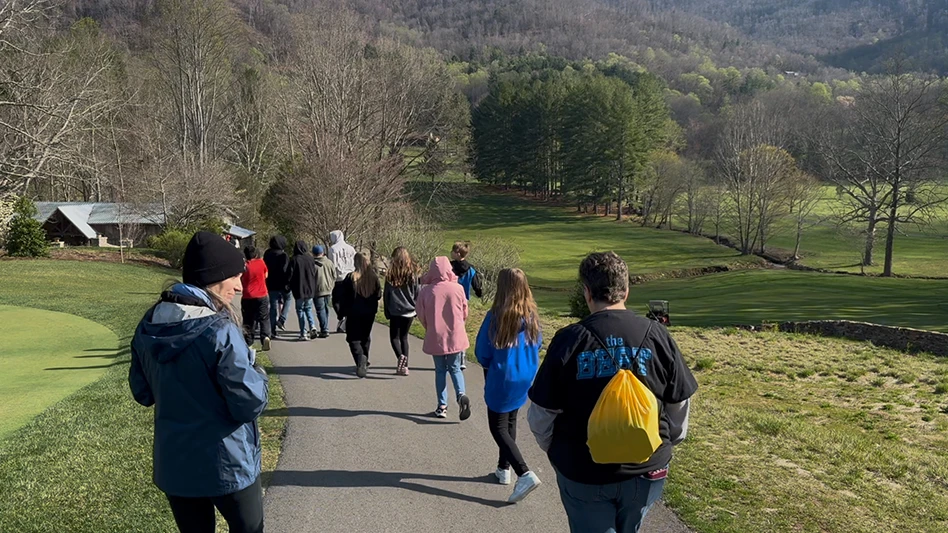Well-designed projects achieve better long term results than an un-designed one, even if it is difficult to “quantify” those results in terms of better aesthetics, maintenance or fairer play conditions. That alone makes the cost of involving a golf course architect inexpensive, especially when spreading out the cost over the 15 to 50 year lifetime of a well-built feature. As insurance salesmen say, “it’s only pennies a day.”
That most clubs who involve architects have learned the hard way that their in-house projects didn’t really solve problems, and may have made them worse is further testament that design fees are less expensive than rebuilding one green twice, and that designers usually don’t increase the cost of a project, but reduce it. In addition to a better, more useful product, golf course architects typically bring substantial short term value for clients through their services, even on the smallest of projects.
Here are some valuable knowledge and skills that golf course architects bring to even your smallest projects, presented David Letterman-style:
10. Permits
It’s not fine to work without a permit, but there are fines – sometimes substantial – for working without certain environmental, ADA and other permits.
9. Broad perspective
Typically, superintendents design for maintenance, contractors design for construction ease and members design for their own games. Golf course architects design from all perspectives and have the skills to bring it together with appropriate compromises.
8. “Apples-to-apples” competitive bids
Even a cart path isn’t always a cart path, as one club found out when they got widely-varying bids. They retained a golf course architect to provide a simple bid package that clarified “industry standard” concrete strength, reinforcing, finish and curbing, and got consistent and acceptable bids. Their cost was a few weeks’ delay, but it might have been much more.
The golf course architect is capable of weeding out unqualified contractors, providing for alternate bids while bidding, when you get competitive pricing, rather than after the bid, when the contractor has more negotiation power. Selecting the right contractor, all factors considered, isn’t always a matter of taking low bid.
6. Contracts
You wouldn’t buy a house (which costs about the same as small renovations) without a contract, and you shouldn’t hire a contractor without one. In small projects of any kind, displeasure arises from differing expectations of responsibilities.
5. Changes on the fly
Surprises happen – construction is a dynamic process. Even after the bids, we are experts at balancing changes – deleting one thing for another, always in your best interest.
4. Construction evaluation
Owners should use their architects to monitor their contractor to get what they pay for. The need for expert construction evaluation can is summed up in these phrases:
“You don’t get what you expect, but what you inspect.”
“Trust your mother, but cut the cards!”
“If the contractor becomes your best friend, he got the best of you.”
3. Schedule
Missed schedules cost you more than high bids, so setting a realistic one is imperative.
2. Transition from construction to post-construction
Changes in grasses and/or green construction often need a new maintenance regimen. While superintendents usually network to find out, your architect is also a valuable source of information past design.
And the No. 1 reason to use a golf course architect:
When things go wrong, you have an expert to blame!
OK, I am just kidding there. Having an outside consultant design – and explain – proposed changes can go a long way towards blunting the often-unfounded, but always-ongoing rumors and criticism.
Every project – no matter how small – is unique, and will go better when a combination of experienced people look at its parameters rather than assume it is standard, can’t be done better, or will encounter no problems. Sometimes, the smallest projects require the most detailed planning to pull off, and experienced golf course architects can help you achieve success, often for a very reasonable fee. GCI

Explore the February 2011 Issue
Check out more from this issue and find your next story to read.
Latest from Golf Course Industry
- The Aquatrols Company hires marketing manager
- Renovating Bredemus in West Texas
- Renovation starts at Okatie Creek GC at Sun City Hilton Head
- The Fittest Podcast in Turf: Episode 1
- New 6-hole course debuts in Oklahoma
- GCSAA announces Grassroots Ambassador Leadership Award recipients
- Reel Turf Techs: David Gummo
- PBI-Gordon promotes two to executive level





